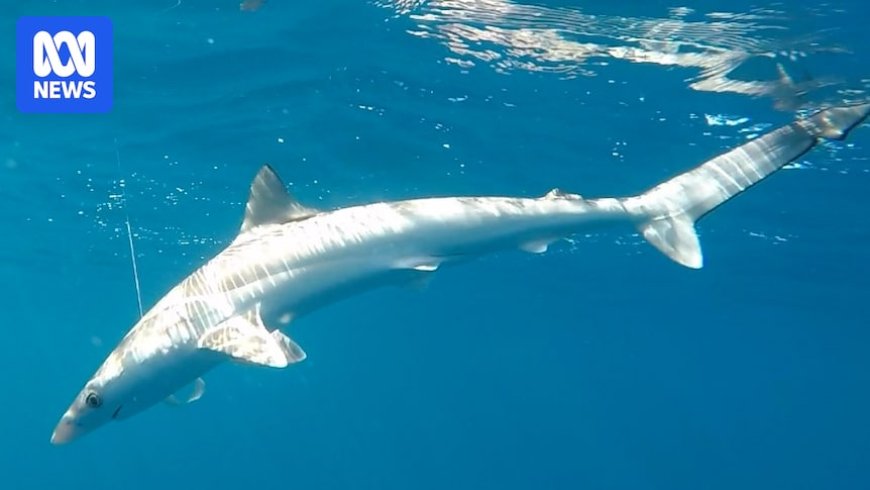Rare Parasitic Worm Found on Shark in Central Queensland Beach
Researchers in central Queensland have discovered a new species of parasitic worm, named Loimos everinghami, on the gills of an Australian sharpnose shark. This find, more than 50 years after the last discovery of a Loimos species, highlights the unique nature of these host-specific parasites. The discovery, made by CQ University's David Vaughan, sheds light on the importance of these worms in regulating the ecosystem.

It's not a discovery that many people would be delighted to make — a new, rare type of parasitic worm. But for researchers in central Queensland, the recent find is a special one decades in the making.
The new species of parasitic worm, known as Loimos everinghami, was found on the gills of the Australian sharpnose shark in waters off central Queensland in the southern Great Barrier Reef. This discovery comes more than 50 years after the last Loimos species discovery.
The lead researcher on the project, CQ University's David Vaughan, said the worm was one of only six Loimos species. 'It comes more than 50 years since the last Loimos species discovery in Brazil in 1972,' Dr Vaughan said. 'It's a very special little worm indeed … it's found nowhere else in the world. These particular parasites, they are very host specific … You won't find them on anything else.'
Dr Vaughan said parasites had evolved over time to specifically live only on this type of shark, feeding on skin and mucus in the gills. In normal numbers, it does not cause any significant health problems for the shark.
The parasitic worm was found in the gills of an Australian sharpnose shark in central Queensland. The parasite was found on the body of a deceased shark, collected from a drumline off Lammemoor Beach in Yeppoon in September 2024.
Dr Vaughan said, looking at the parasite under a microscope, he initially did not believe what he had found. 'I actually first thought it was something else because I was expecting to find a different group of parasites altogether,' he said. But on closer inspection of the parasites, which are only 2 millimetres long, he realised how significant the find was.
'I've always been looking for these particular worms, for about 20 years, from different parts of the world,' he said. 'I was beginning to wonder if they even existed.'
Dr Vaughan explained that the parasites, though small, were important to the ecosystem. 'They work like miniature predators in a way; they help to regulate a healthy population of their hosts,' he said. 'They're connected throughout the food web, so they can provide a lot of positive information.'
The discovery has been published in the peer-reviewed, academic Journal of Helminthology. As for where to next, Dr Vaughan said the team would keep searching for more species. 'It will help us conserve not only the shark species, but the things that are associated with them as well,' he said.
According to the source: Australian Broadcasting Corporation.
What's Your Reaction?
 Like
0
Like
0
 Dislike
0
Dislike
0
 Love
0
Love
0
 Funny
0
Funny
0
 Angry
0
Angry
0
 Sad
0
Sad
0
 Wow
0
Wow
0
















































































































































































